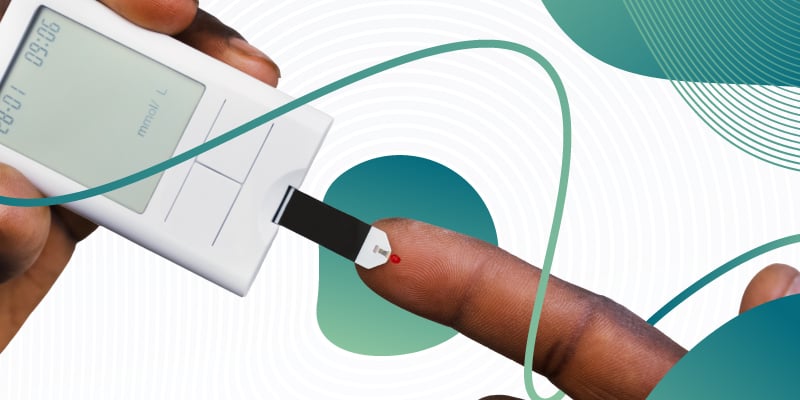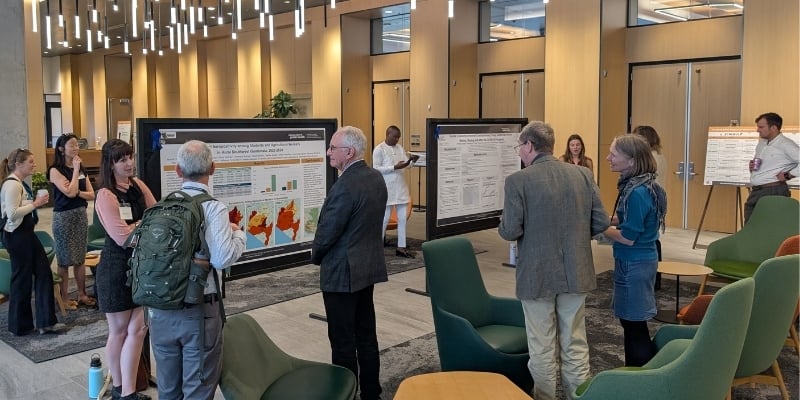The Cancer Prevention and Control Research Network (CPCRN) has published a supplemental issue of Cancer Causes and Control to mark the Network’s 20th anniversary. As one of the Network Centers since 2019, the Colorado-based CPCRN site in the Rocky Mountain Prevention Research Center (RMPRC) at the Colorado School of Public Health played an integral part of in the writing and release of this supplement.
The 20th anniversary supplement is separated into five subthemes:
- Addressing Equity through CPCRN
- Capacity Building
- Partnership Engagement
- Rural Cancer Prevention and Control
- Future Cancer Needs and Priorities
The 21 articles co-written by Network members, partners, and affiliates detail frameworks to address disparities in cancer prevention, strategies to build capacity and engagement across community partners, and considerations on working with medically underserved populations, such as rural and bicultural communities.
The closing article, titled “The Special Sauce of the Cancer Prevention and Control Research Network: 20 years of Lessons Learned in Developing the Evidence Base, Building Community Capacity and Translating Research into Practice,” describes the nature and extent of collaborations within CPCRN publications and illustrates the strategies, expertise, and key structures and processes that have enabled CPCPN’s work.
“Together, these articles represent the tremendous breadth and depth of CPCRN research products in the current funding cycle,” said Dr. Stephanie Wheeler, Principal Investigator (PI) of the CPCRN coordinating center. “Our members have been able to generate and sustain an impressive number of novel research ideas that they have then executed through projects which have helped transform the science of cancer prevention and control. From studies focused on reducing cancer risk exposure to ensuring timely cancer screening and early detection all the way through to optimizing guideline-concordant treatment and survivorship care, our members are invested in leveraging collaborative wisdom with community partners to achieve the best possible cancer health outcomes for all.”
More than a third of the articles in the anniversary edition included CU Anschutz investigators
Eight articles were led or co-authored by investigators across multiple schools and centers on the University of Colorado Anschutz Medical Campus in both the Colorado School of Public Health and the CU School of Medicine and in the CU Cancer Center including: Jamie Studts, Elaine Morrato, Linda Overholser, Patricia Valverde, Andrea Dwyer, Emily Bilenduke, and Betsy Risendal (site PI).
“Lessons learned from our participation in the CPCRN have already benefited Coloradans,“ said Betsy Risendal, PhD, principle investigator for CPCRN’s Colorado site and professor of community and behavioral health. “Using the strategy of mini-grants adopted from other sites in the Network, we are currently supporting capacity-building in organizations throughout the region to promote patient navigation and other evidence-based approaches.”
Risendal also indicated that the Colorado site in the Colorado School of Public Health’s Rocky Mountain Prevention Research Center (RMPRC) developed free, online resources to provide support for programs to identify those most at risk for cancer based on family history, “which remains a vastly underutilized evidence-based cancer prevention and control strategy in Colorado and throughout the US,” added Risendal.
RMPRC Director, and Professor and Chair of the Department of Community and Behavioral Health, Jenn Leiferman, PhD, added, “The team at the Colorado CPCRN has been an outstanding resource for the RMPRC and the Colorado School of Public Health by enhancing our approaches to engagement and capacity building. We are using some of the same strategies to develop implementation support tools and other products for our community-based work in family health and child well-being.”
“CPCRN is the largest and longest-running thematic research network supported by CDC's Prevention Research Centers Program,” said Lisa C. Richardson, MD, MPH, director of CDC’s Division of Cancer Prevention and Control. “Over the past two decades, CPCRN has played a critical role in creating and translating the evidence of what works into practice, with an emphasis on alleviating differences in cancer outcomes for all populations.”
Reflecting on how the Network’s partnerships have impacted communities and policies in the past two decades, Dr. Wheeler said, “It's really about three key elements—the power of people from diverse backgrounds, working within carefully designed structures and processes, who are willing to adapt to real-world challenges like COVID19, to see beyond one research project, and to think about systems transformation that can bring about larger change.”
The supplement is published open access by SpringerNature. Articles including ColoradoSPH and CU School of Medicine researchers can also be individually downloaded by following the links below:
Introductory Article
Sub-Theme 1: Addressing Equity through CPCRN
-
Principles to operationalize equity in cancer research and health outcomes: lessons learned from the Cancer Prevention and Control Research Network
Perla Chebli, Prajakta Adsul, Julie Kranick, Catherine L. Rohweder, Betsy C. Risendal, Emily Bilenduke, Rebecca Williams, Stephanie Wheeler, Simona C. Kwon & Chau Trinh-Shevri - Identifying research practices toward achieving health equity principles within the Cancer Prevention and Control Research Network
Prajakta Adsul, Jessica Islam, Perla Chebli, Julie Kranick, Sarah Nash, Hannah Arem, Stephanie Wheeler, Melissa Lopez-Pentecost, Victoria Foster, Rashmi K. Sharma, Tisha Felder, Betsy Risendal, Enmanuel A. Chavarria, Simona Kwon, Rachel Hirschey & Chau Trinh-Shevrin
Sub-Theme 2: Capacity-Building
- Twenty years of capacity building across the Cancer Prevention and Control Research Network
Mary Wangen, Cam Escoffery, Maria E. Fernandez, Daniela B. Friedman, Peggy Hannon, Linda K. Ko, Annette E. Maxwell, Courtney Petagna, Betsy Risendal, Catherine Rohweder & Jennifer Leeman - Mixed methods evaluation of the inaugural year of the Cancer Prevention and Control Research Network’s (CPCRN) scholars program
Cam Escoffery, Courtney N. Petagna, Mary Wangen, Kimberly J. Flicker, Samuel B. Noblet, Mayank Sakhuja, Cynthia A. Thomson, Elaine H. Morrato, Swann Adams, Jennifer Leeman & Daniela B. Friedman
Sub-Theme 3: Partnership Engagement
- A practical method for integrating community priorities in planning and implementing cancer control programs
Emily Bilenduke, Andrea J. Dwyer, Elsa S. Staples, Kristin Kilbourn, Patricia A. Valverde, Maria E. Fernández & Betsy C. Risendal
Sub-Theme 4: Rural Cancer Prevention and Control
- Prioritizing rural populations in state comprehensive cancer control plans: a qualitative assessment
Rachel Hirschey, Catherine Rohweder, Whitney E. Zahnd, Jan M. Eberth, Prajakta Adsul, Yue Guan, Katherine A. Yeager, Heidi Haines, Paige E. Farris, Jennifer W. Bea, Andrea Dwyer, Purnima Madhivanan, Radhika Ranganathan, Aaron T. Seaman, Thuy Vu, Karen Wickersham, Maihan Vu, Randall Teal, Kara Giannone, Alison Hilton, Allison Cole, Jessica Y. Islam & Natoshia Askelson - Effect of rurality and travel distance on contralateral prophylactic mastectomy for unilateral breast cancer
Madison M. Wahlen, Ingrid M. Lizarraga, Amanda R. Kahl, Whitney E. Zahnd, Jan M. Eberth, Linda Overholser, Natoshia Askelson, Rachel Hirschey, Katherine Yeager, Sarah Nash, Jacklyn M. Engelbart & Mary E. Charlton
Sub-Theme 5: Future Cancer Needs and Priorities
- Re-visiting the Call for Translation of Cancer Survivorship Research: Collaborative Multidisciplinary Approaches to Improve Translation and Dissemination
Betsy Risendal, Cynthia A. Thomson, Aaron Seaman, Rachel Hirschey & Linda Overholser - Equitable implementation of lung cancer screening: Avoiding its potential to mirror existing inequities among people who use tobacco
Emily Bilenduke, Shacoria Anderson, Alison Brenner, Jessica Currier, Jan M. Eberth, Jaron King, Stephanie R. Land, Betsy C. Risendal, Jackilen Shannon, Leeann N. Siegel, Mary Wangen, Austin R. Waters, Whitney E. Zahnd & Jamie L. Studts
The supplement was guest-edited by CPCRN members, Drs. Prajakta Adsul (University of New Mexico), Cam Escoffery (Emory University), Aaron Seaman (University of Iowa), Cynthia Thomson (University of Arizona), and Stephanie Wheeler (University of North Carolina at Chapel Hill).
About CRCPN
The Network was initiated in October 2002, as part of the Center for Disease Control and Prevention’s (CDC) and the National Cancer Institute’s (NCI) ongoing efforts to translate research findings more effectively into practice and policy, with a special focus on the unmet needs of populations at higher risk of getting cancer and dying from it.
Over the past two decades, the Network has been successful in influencing local clinic practices, state cancer plans, and national organizations’ practices and policies. The supplemental issue of Cancer Causes and Control reflects on the Network’s successes and lessons learned.
CPCRN’s 247 current members comprise academic, public health, clinical, health system organizational, and community partners who work together to reduce the burden of cancer, especially among those disproportionately affected. The Network’s vision is to reduce the burden of cancer in U.S. populations and eliminate cancer disparities.
Focused on cancer research through a health equity lens, the Network conducts community-engaged research across eight collaborating Network centers funded by the CDC, including the Colorado School of Public Health (led by Dr. Betsy Risendal), Emory University (led by Dr. Cam Escoffery), New York University – City University of New York (led by Dr. Chau Trinh-Shevrin), University of Arizona (led by Dr. Cynthia Thomson and Dr. David Garcia), University of Iowa (led by Dr. Natoshia Askelson), University of North Carolina at Chapel Hill (led by Dr. Alison Brenner and Dr. Rachel Hirschey), University of South Carolina (led by Dr. Daniela Friedman, Dr. James Hébert, and Dr. Swann Adams), and University of Washington (led by Dr. Linda Ko). The UNC Center for Health Promotion and Disease Prevention (HPDP), hosts the Network’s coordinating center, led by Dr. Stephanie Wheeler as Principal Investigator.
In 2022, CPCRN celebrated its 20th anniversary by hosting a webinar titled "20 Years of the Cancer Prevention and Control Research Network (CPCRN): Past, Present, and Future.” The virtual event reached more than 150 total attendees, and Network member panelists shared information about collaborative work carried out across the Network. The webinar highlighted tools and programs collectively developed and implemented across multicenter workgroups, discussed current works in progress, and explored areas for research and practice growth in implementation science.
Funding Acknowledgement
This journal supplement is a product of the Cancer Prevention and Control Research Network (CPCRN). CPCRN-supported institutions receive funding support under Cooperative Agreement Numbers U48 DP006377, U48 DP006396, U48 DP006413, U48 DP006399, U48 DP006389, U48 DP006400, U48 DP006401, U48 DP006398 from the National Center for Chronic Disease Prevention and Health Promotion of the Centers for Disease Control and Prevention (CDC), U.S. Department of Health and Human Services (HHS) through its Prevention Research Center Program. The ideas expressed in the articles are those of the authors and do not necessarily represent the official views of, nor an endorsement, by CDC/HHS, or the U.S. Government.



-Dec-13-2023-12-35-15-8224-AM.jpg)


